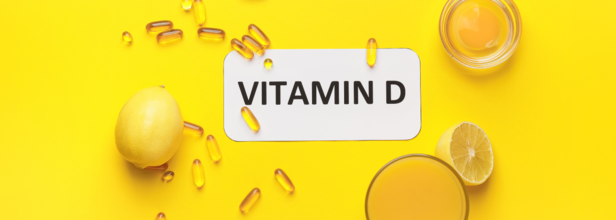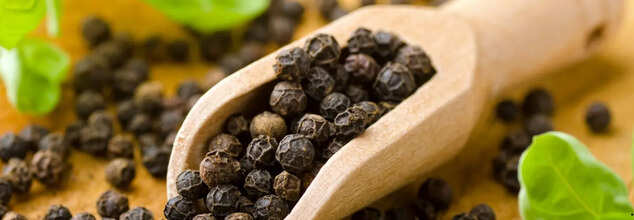
Image Credit: Canva
Do Health Shots Really Boost Immunity? Expert Breaks It Down
As far back as I can recall, people have been searching for ways to strengthen their immune systems—either through food, vitamins, or changes in lifestyle. As scientists continue to investigate how practical it is to "boost" immunity, all that has not prevented an increasing number of products from flooding the health and wellness industry. One of them is health shots, or immunity shots, which purport to give a strong dose of immune-boosting nutrients in a small, concentrated liquid.
Do wellness shots work, or are they another health trend? We spoke to Dr. Ravi Kesari, General Medicine Expert, to deconstruct the science behind these shots and if they actually do assist in strengthening your immune defenses.
What Are Health Shots?
Health shots have become popular as a quick-fix to boost immunity, especially during cold and flu season. Unlike injectables, these are tiny, liquid shots—found at grocery stores and juice bars—that usually comprise a combination of vitamins, minerals, and plant extracts.
In accordance with Dr. Kesari, the shots are made with ingredients that have immune-boosting properties, including:
Vitamin C – A widely recognized antioxidant that aids immune function.
Zinc – Required for immune response, but excess can lead to digestive problems.
Turmeric & Ginger – Recognized for anti-inflammatory effects.
Echinacea & Elderberry – Well-known herbal supplements supposed to alleviate symptoms of cold.
Apple Cider Vinegar – Frequently added due to its supposed health benefits in digestion.
Even though these compounds sound healthy, Dr. Kesari cautions that their potency depends on the dose, bioavailability, and the person's health.
Do Health Shots Work?
The immune system is a balancing act that takes advantage of strength over sudden "boosts." Although some vitamins—such as vitamins C and D, and zinc—play a part in immune function, taking them beyond a certain dose doesn't provide additional immunity.
Dr. Kesari clarifies, "Your body absorbs only what it needs. Overloading on vitamins does not strengthen your immune system—it merely results in waste or, in some instances, bad side effects."
For example, although vitamin C is crucial to immune function, megadoses won't stop infections. Also, although zinc is valuable in fighting colds, excessive intake may bring about nausea or even kidney stones.
Common Ingredients in Immunity Shots
Let's take a closer look at the most common ingredients in wellness shots and what science actually has to say about them:
Vitamin C & Zinc
Both of these nutrients have clearly defined immune roles, but beyond a certain point, more of them is not better. Indeed, too much could cause digestive upset or toxicity.
Echinacea & Elderberry
These natural ingredients are usually sold as shortening colds. According to some studies, they can provide some benefits but no concrete scientific evidence that they can prevent or cure infections significantly.
Ginger & Turmeric
The two spices contain anti-inflammatory properties and can potentially reduce inflammation in the body. They don't have any significant effect on immunity.
Apple Cider Vinegar
Apple cider vinegar is commonly found in wellness shots for its health benefits to the gut. Although it can benefit digestion, too much consumption can lead to the wear of tooth enamel as well as irritation of the stomach.
Are There Any Risks to Taking Health Shots?
Though wellness shots can be harmless, excessive consumption of some nutrients poses health risks. Dr. Kesari points out the following risks:
Vitamin & Mineral Overload – Excess amounts of vitamin C, zinc, or other vitamins and minerals may lead to toxicity, which causes digestive upset, kidney damage, or nerve impairment.
Medication Interactions – Certain herbal ingredients, such as Echinacea, can interfere with blood thinners or other drugs.
Gastrointestinal Problems – Large doses of apple cider vinegar can result in acid reflux, nausea, and enamel damage.
Dr. Kesari emphasizes, "Health shots should complement a balanced diet but should not be used as a substitute for whole foods or medical treatments."
Health Shots vs. Vaccination: Understanding the Difference
One of the biggest misconceptions is that health shots can replace vaccines. While wellness shots may offer nutritional benefits, they do not protect against infectious diseases the way vaccines do.
Dr. Kesari explains, "Vaccines are scientifically proven to prevent certain infections by building the body's immune system. Health shots, however, give temporary bursts of nutrients but do not offer immunity against viruses such as the flu or COVID-19."
Are Health Shots Worth It?
So, are you taking immunity shots? The response is determined by your overall diet and lifestyle. If you already eat a variety of nutrient-dense foods, you probably don't need them. But if you have trouble getting sufficient vitamins and antioxidants in your diet, an occasional wellness shot can be helpful.
What Really Supports a Healthy Immune System?
Rather than turning to quick fixes, Dr. Kesari suggests:
- Consuming a balanced diet rich in fruits, vegetables, and lean proteins.
- Having adequate rest, since deprivation of sleep undermines the immune system.
- Doing regular exercises to keep immune cells active.
- Remaining hydrated to facilitate optimal functioning of bodily processes.
- Managing stress, as chronic stress lowers immunity.
Health shots can be a handy supplement to your diet, but should never substitute for a balanced regimen of immunity. They are no magic bullet and may only confer short-term advantages. The key to immune support still lies with a healthy way of life, vaccines, and routine medical screenings.
If you are thinking of adding wellness shots to your regimen, speak with your physician, particularly if you have existing health issues or are on medication.
Dr Ravi Kesari is MBBS, MD- General Medicine at Apollo Spectra Hospital, Bangalore in India

Credits: Canva
What Role Does Vitamin D Play In Your Gut Health?
Vitamin D is known for its role for maintaining strong bones and teeth. However, its benefits can be extended beyond bone health and skeletal health. It is an essential nutrient that is involved in several bodily functions, including immune support, blood sugar regulation, and gut health.
A research conducted through the MetA-Bone Trial by the Washington Post, focused on how a dietary fiber supplement can impact bone mass in children and adolescents. It is in this process that the team uncovered a surprising connection between vitamin D and gut health.
How Was The Research Conducted?
The research examined 213 children and adolescents from South Florida, who were primarily Hispanic and Blacks. Their vitamin D levels were measured before they started taking the supplement. 68% of them had suboptimal vitamin D levels.
South Florida has abundant of sunshine around the year, the finding was unexpected, in fact, concerning. While vitamin D is present in some foods, most of it can be consumed through sunlight. In fact, most Americans rely on sunlight for their vitamin D intake. This deficiency is alarming for children and adolescents who are approaching their puberty, which is a period of rapid physiological change and includes bone mass development.
The Many Roles of Vitamin D
Vitamin D plays a crucial role in different bodily functions. Vitamin D receptors are present in several organs which serve as docking stations for the vitamin and allows it to exert its effects on the skin, intestines, bones, parathyroid gland, immune system and pancreas.
One of vitamin D’s primary functions is regulating calcium levels in the body. This regulation is essential not only for bone formation and maintenance but also for the proper functioning of the nervous system. Vitamin D also contributes to cell differentiation, the process by which cells become specialized to perform specific tasks. Additionally, it plays a role in insulin secretion, blood pressure regulation, muscle repair, immune function, and nutrient absorption.
How Can Vitamin D Support Your Gut Health?
Your gut system is home to many vitamin D receptors and so it can contribute to better calcium absorption and a stronger intestinal barrier.
It is this barrier that allows the intestines to absorb nutrients while keeping harmful bacteria and toxins out. It consists of intestinal cells re connected by proteins which are called the tight junctions. Vitamin D receptors also help produce these tight junctions and ensure the integrity of the gut lining.
Research indicates that a deficiency in vitamin D can weaken these receptors, reducing the strength of the intestinal barrier. A compromised barrier allows substances from the gut to enter the bloodstream, leading to inflammation. This breakdown has been associated with various health conditions, including liver disease, Type 1 diabetes, obesity, and gastrointestinal disorders such as celiac disease, inflammatory bowel disease, and colon cancer.
As part of our study, we also assessed the intestinal barrier strength of our participants and compared it with their vitamin D levels. Our findings revealed that children with suboptimal vitamin D levels had a higher risk of compromised gut health. Even among otherwise healthy children, low vitamin D levels could potentially increase the risk of chronic diseases at an early age.

Image Credits: Canva
Can Homeopathy Really Detox Your Body? Expert Weigh In
Detoxification is the body's natural cleansing process of eliminating dangerous toxins that have built up from environmental toxins, poor diets, and stress. It cleanses the blood, liver, and other organs involved in the process of waste elimination. While mainstream detoxing processes usually consist of rigid diets, fasting, or colon cleanses, homeopathy offers a softer and holistic means of stimulating the body's own cleansing processes.
The new lifestyle has contributed immensely to changed eating patterns, resulting in increased chronic conditions of obesity, diabetes, and heart diseases. Toxins penetrate the body in the form of processed foods, alcohol, pollution, and stress. They become part of the blood and lymphatic system, slowly accumulating in essential organs such as the liver, kidneys, and intestines. These toxins, if not efficiently eliminated, can result in fatigue, gastrointestinal discomfort, skin ailments, and compromised immunity.
The liver is the primary organ for detoxification. Through the process of metabolism, the Phase 1 detoxification of the liver (also referred to as the P450 enzyme system) creates free radicals, which can cause tissue damage if there are not adequate antioxidants within the body. This is why dietary or supplement replenishment of antioxidants is important in order to detoxify efficiently.
Can Homeopathy Naturally Detox?
As opposed to traditional detox routines that are hard on the body, homeopathy acts on the cellular level to complement the body's inherent capacity for detoxification. According to Dr. Manju Singh, Homeopathy expert, homeopathy does not cleanse but instead 'drains' toxins, and that it activates the body's defense mechanisms, allowing toxins to be removed effectively without an interruption in overall health.
Homeopathic Remedies for Detoxification
Nux Vomica: Perfect for detoxifying after binge drinking, caffeine, or fast foods. Alleviates bloating, nausea, and stomach discomfort.
Lycopodium: Facilitates liver function and eliminates digestive problems such as gas, bloating, and acidity.
Sulphur: Famous for purifying the skin, it clears acne, eczema, and rashes due to toxin accumulation.
Berberis Vulgaris: Maintains kidney health by facilitating the elimination of toxins through urine, keeping kidney-related diseases at bay.
Chelidonium Majus: Supports liver functioning, digestion, and fat digestion without any effort.
Why Lifestyle Plays an Important Role in Detoxification?
Though homeopathy is a strong supporter of detoxification, healthy lifestyle also plays a similar role. The inclusion of the following habits can make the body most effective in natural toxin removal:
1. Hydration
Adequate intake of water is essential to flush out toxins in the form of urine and sweat. Herbal teas and fresh juices can also aid in hydration and detoxification.
2. Nutrient-Dense Diet
A well-balanced diet that includes plenty of fruits, vegetables, whole grains, and fiber feeds the body while encouraging toxin elimination. Cutting down on processed foods, alcohol, and excessive caffeine consumption further aids detoxification.
3. Consistent Physical Exercise
Exercise increases blood circulation, strengthens digestion, and activates the lymphatic system, which helps remove toxins through sweat and breath.
4. Stress Control
Ongoing stress may lead to increased toxin accumulation in the body. Stress levels can be controlled through deep breathing techniques, meditation, and yoga, which further benefit overall health.
5. Reducing Chemical Exposure
Restricting exposure to environmental toxins, including air pollution, artificial cleaning agents, and pesticides, reduces the toxin load on the body.
Homeopathy may provide a holistic and natural means of detoxification, removing toxins from the body without harm while restoring equilibrium. A visit to a qualified homeopathic practitioner guarantees a personalized detox program suited to individual needs, making the process safe, effective, and sustainable.
Dr. Manju Singh, B.H.M.S., Homeopathy Consultant and senior homeopathic medical officer at SBL Global, India

Credit: Canva
How To Use Black Pepper For Weight Loss
Spices are the heart of Indian cuisine, adding depth and distinct flavors to dishes. Besides that, they are also hold strong medicinal value. One such widely used spice is black pepper, also known as Kali mirch. Its bold aroma and sharp taste can instantly elevate any dish, making it an essential ingredient in Indian cooking. But beyond enhancing flavor, this common kitchen staple is also a natural fat burner.
How Does Balck Pepper Aid Weight Loss?
Black pepper contains piperine, a bioactive compound known for boosting metabolism and preventing fat accumulation in the body. Additionally, it enhances the concentration of good cholesterol, contributing to better heart health.This spice is classified as a thermogenic food, meaning it helps accelerate metabolic processes, allowing the body to burn calories more efficiently. Furthermore, studies suggest that consuming spicy foods can increase satiety, making you feel full even after consuming smaller portions—an important factor in weight management.
Ways To Use Black Pepper For Weight Loss
Several studies highlight the benefits of incorporating black pepper into the daily diet for effective weight loss. While this spice is generally safe for consumption, moderation is key. Experts recommend limiting intake to 1-2 teaspoons per day, as excessive consumption may lead to digestive issues.Here are some easy and effective ways to include black pepper in your diet:
1. Black Pepper Tea
For those who love tea, adding black pepper can transform it into a **weight-loss-friendly beverage**.
How to prepare
- Boil one cup of water in a pan.
- Add one inch of crushed ginger and let it simmer for five minutes.
- Strain into a cup and steep a green tea bag in it.
- Add half a teaspoon of black pepper, stir well, and drink.
2. Chewing Raw Black Pepper
If you can tolerate its strong taste, chewing 2-3 black peppercorns on an empty stomach every morning can be beneficial.
3. Black Pepper and Honey Drink
A simple detox drink, this combination can support digestion and metabolism.
How to prepare
- Boil one cup of water and let it cool slightly.
- Stir in one teaspoon of honey and half a teaspoon of freshly ground black pepper.
- Drink it warm for best results.
4. Black Pepper Oil
Black pepper oil, when consumed in small amounts, may aid in weight loss.
How to use:
- Purchase 100% pure black pepper oil from a reliable pharmacy.
- Add one drop to a glass of water, mix well, and drink before breakfast.
5. Black Pepper in Juices
Enhance the nutritional value of fruit and vegetable juices by adding black pepper. Simply mix half a teaspoon into your juice before consumption.
Best Time to Consume Black Pepper
For maximum benefits, black pepper should be consumed **on an empty stomach**, preferably before breakfast. This helps stimulate digestion and optimize metabolic activity throughout the day.
Are There Any Side Effects Of Using Black Pepper?
While black pepper is a powerhouse of health benefits, excessive intake can lead to:
- Gastric issues and stomach upset
- Irritation of the intestinal lining
- Increased risk of miscarriage in pregnant women (should be avoided during pregnancy)
© 2024 Bennett, Coleman & Company Limited

